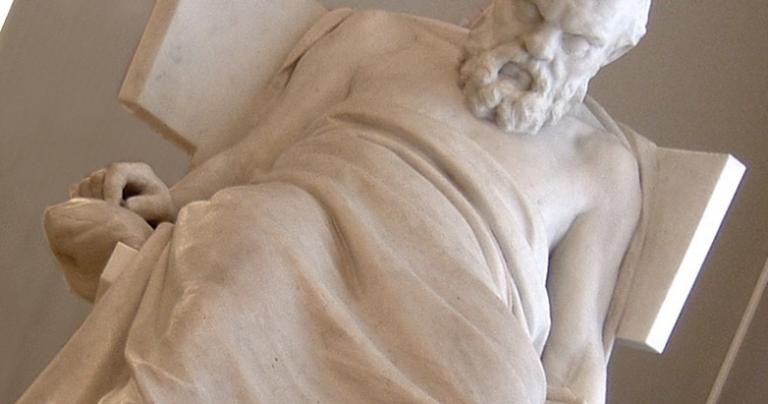 Socrates knew what Jesus incarnated: the beginning questions contain the apocalypse and paradise.
Socrates knew what Jesus incarnated: the beginning questions contain the apocalypse and paradise.
News happens quickly, if we are thinking of what everyone is talking about now. In reality, Americans have not digested the evils done to First Nations (American Indians) or the good done by the liberation of Western Europe from the Nazis. World War I and the decisions of the racist in chief Woodrow Wilson roil our lives, but we miss reality for the news.
If we thought harder about First Nations and Austria-Hungary, we might have less to say about the news, but more to say about the problems that impact the world. I am just returning from a few days in a marvelous land where 1918, 1945, and 1989 are known to matter and the result was a few weeks of sanity.
Socrates understood that education looked to the eternal things and applied them to the major moments of history. Edutainment focuses on the moment, the trendy, the up to date that is forever dated, because that is easier: “for” or “against” gives the thrill of a movement and if action is limited to a Facebook post or a Tweet, then one has gained much of the pleasure of educated activism without the pain.
Edutainment is the attempt by those selling us eduction for money to give us the pleasures of education without the pain. Times do change. A grifter like Thrasymachus, the proponent of tyranny in Republic, did not ask his students to borrow at high interest for thirty years to learn sophistry as do modern millionaire college presidents.
Socrates in Republic comes to the end of the discussion with his era’s college president and feels disatisfied. He has dropped a few mics, lost a round, but mostly shut up his foe. Socrates’ focus on defeating Thrasymachus caused him to forget his primary objective: learning the nature of justice, defending the just life, and becoming just. Instead, Socrates has drifted into edutainment and snatched up the fun of debate. He has won the debate, but forgotten the first questions.
Socrates wanted to know justice, so he could do justice. He defeats a tyrant, but does so tyrannically. He does not make his best arguments, just ones that win. He does not improve his own views and life, just silences his opponent. Socrates is a tyrant against tyranny by the end of Book I and if we must choose between that and true tyranny, then Socrates has done right.
We do not have to make that choice as the rest of Republic shows. We can keep our first questions in mind, learn, and so find education.
I ask myself: “When I look at the news today, am I recalling my goals?” There is not profit to failing to answer basic questions, because we have been distracted by the issue of the day. We must answer the questions that got us started. Burned out sell outs will call this naive idealism: Socrates calls it wisdom.
———————————————-
*I begin an informal summer reading of Republic using Scott/Sterling (a new translation for me). Part 1. Part 2. Part 3. Part 4. Part 5. Part 6. Part 7. Part 8. Part 9. Part 10. Part 11. Part 12. Part 13. Part 14. Part 15. Part 16. Part 17. Part 18. Part 19. Part 20. Part 21. Part 22. Part 23. Part 24. Part 25. Part 26. Part 27. Part 28. Part 29. Part 30. Part 31. Part 32. Part 33. Part 34. Part 35. Part 36. Part 37. Part 38. Part 39. Part 40. Part 41. Part 42. Part 43. Part 44. Part 45. Part 45.5. Part 46. Part 47. Part 48. Part 49. Part 50. Part 51. Part 52. Part 52.5. Part 53. Part 54. Part 55.
















